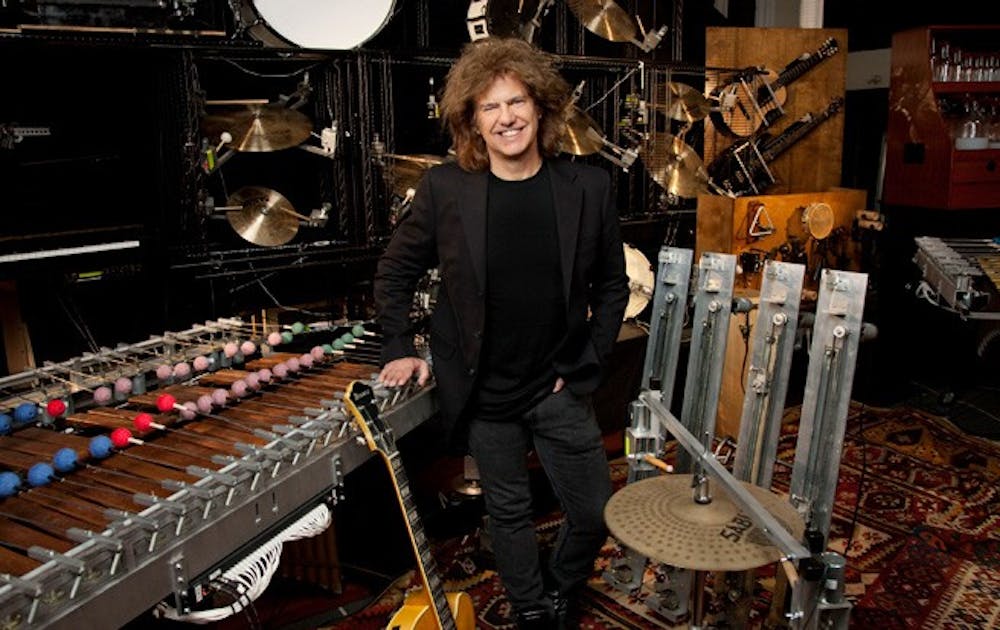In 2010, legendary jazz guitarist Pat Metheny conceived what is known as “The Orchestrion.” An orchestrion is an orchestra comprised of automated instruments. Metheny’s Orchestrion is set up so that Metheny, playing only his guitar, can play the whole orchestra simultaneously: e.g. he can pluck one string in a certain way and make the synth play a particular note. As outlandish and futuristic as it seems, the orchestrion is not an entirely new concept. Automated orchestras have existed since around 1805, but they have never been done quite like Metheny’s. Whereas typical orchestrion arrangements play tunes that sound like they were composed for player pianos or carousels, Metheny’s orchestrion plays a complicated, contemporary version of fusion jazz.
Pat Metheny has been considered one of the world’s premier jazz guitarists for over twenty years. Earlier this week he won his 20th Grammy award; he has released over 50 unique albums, some of which feature 42 string guitars; he has been featured as DownBeat Magazine’s guitarist of the year four times; and his solo guitar work has been widely acclaimed. But it’s with Orchestrion that Metheny best demonstrates his versatility, compiling all of the styles from his diverse repertoire of jazz, fusion, latin and post-bop.
It seems like a risky, avant-garde move, but the album still sounds like a Metheny record. Many of the tracks, separated from the album’s conceit, could easily camouflage next to dozens of other fusion tracks released previously from Metheny. “Expansion” is a prime example. Its classic smooth guitar solos with a latin vibe are somewhat predictable. Given that it is composed and played by an automated orchestration, it admittedly is more impressive, but judged as music separate from its performance, the track doesn’t stand out. Not every track is as predictable. “80/81 Broadway Blues” edges on experimental jazz. Beginning with a simple, soft, pan flute, the track progresses to a more discordant array of sounds and crashes, all the while quoting classic jazz riffs. The track “Orchestrion” is a showcase of the talent and creativity that went into the production of the album, but it seems as if it embraces the pop side of fusion a little too much and feels a bit showy. By contrast, “Unity Village,” the last track on the album, is the least Orchestrion-sounding of the bunch. It’s the album’s purest track, the song least dependent on the Orchestrion conceit, and it’s one of the only times on the album where a completely solo guitar is featured. That’s not a coincidence. The idea of the album is to create something complex and it wouldn’t be very impressive if Metheny’s guitar just controlled his guitar. However, it’s not until “Unity Village” that Metheny’s strength as soloist comes through, and it’s clear that Metheny has often made his songs over-complicated so as to have the Orchestrion inspire greater awe.
As a concept album, The Orchestrion Project is phenomenal. It’s mind-boggling that such distinctive tracks could be composed of automated instruments all played by one brilliant musician. But none of the tracks are emotionally difficult or moving in the way of the best fusion jazz. Separate the album from its method, and it’s another solid, but forgettable, Metheny album.
Get The Chronicle straight to your inbox
Signup for our weekly newsletter. Cancel at any time.

